Postman Export Workspace: Streamlining API Development and CollaborationIn the world of API development and testing, Postman has become an indispensable tool for developers, testers, and teams worldwide. One of its most powerful features is the ability to export workspaces, which enhances collaboration, backup, and portability of API projects.
Introducing Apidog - a low-code API tool with comprehensive tools required in the modern age of API development. With Apidog, you are guaranteed to be capable of building, testing, mocking, and documenting APIs.
To learn more about Apidog, click the button below!

This article delves into the intricacies of Postman's Export Workspace functionality, exploring its benefits, use cases and best practices.
Understanding Postman Workspaces
Before diving into the export feature, it's crucial to understand what Postman workspaces are and why they're essential. Workspaces in Postman are collaborative spaces that group together various elements such as collections, APIs, environments, mock servers, and monitors. They serve as organizational units that help teams manage their API development projects more effectively.
Key Benefits of Workspaces
- Improved organization
- Enhanced collaboration
- Better version control
- Streamlined workflow
Workspaces can be personal, private, team-based, or public, depending on the visibility settings and collaboration needs.
The Power of Exporting Workspaces
Exporting a workspace in Postman allows users to create a portable snapshot of their API development environment. This feature is particularly valuable for several reasons:
Backup and Version Control
By exporting workspaces regularly, teams can maintain backups of their API projects, ensuring that no work is lost due to unforeseen circumstances.
Knowledge Transfer
When onboarding new team members or transitioning projects, exported workspaces serve as comprehensive packages of API-related information.
Cross-Team Collaboration
Exporting workspaces facilitates the sharing of API projects across different teams or departments within an organization.
Migration
When moving from one Postman account to another or between different instances of Postman, exported workspaces ensure a smooth transition.
How to Export a Workspace
Exporting a workspace in Postman is a straightforward process:
- Open the desired workspace
- Navigate to the workspace settings
- Look for the export option
- Choose the elements you want to include in the export
- Select the export format (typically JSON)
- Save the exported file to your desired location
The exported file will contain all the selected elements of your workspace, including collections, environments, and other configurations.
Best Practices for Workspace Export
To make the most of Postman's workspace export feature, consider the following best practices:
Regular Exports
Schedule regular exports of critical workspaces to maintain up-to-date backups.
Selective Exporting
When sharing workspaces, only include the necessary elements to avoid cluttering the recipient's environment.
Version Naming
Use clear and consistent naming conventions for exported workspace files to track versions easily.
Security Considerations
Be cautious when exporting workspaces containing sensitive information. Ensure that exported files are stored securely and shared only with authorized personnel.
Documentation
Include a README file with exported workspaces to provide context and instructions for using the exported data.
Use Cases for Workspace Export
The versatility of Postman's workspace export feature makes it valuable in various scenarios
Project Handovers
When transitioning projects between teams or developers, an exported workspace ensures that all API-related information is transferred comprehensively.
Disaster Recovery
Regular exports of critical workspaces serve as backups in case of data loss or system failures.
Training and Onboarding
Exported workspaces can be used to create standardized training environments for new team members, ensuring consistency in API development practices.
Open Source Contributions
Public API projects can be easily shared with the community through exported workspaces, fostering collaboration and knowledge sharing.
Enhancing Collaboration with Exported Workspaces
One of the primary benefits of exporting workspaces is the enhancement of collaboration among team members and even across different organizations. Here's how exported workspaces facilitate better collaboration:
Standardization
By sharing exported workspaces, teams can ensure that all members are working with the same set of collections, environments, and configurations. This standardization reduces inconsistencies and improves overall project quality.
Asynchronous Collaboration
Exported workspaces allow team members to work on API projects asynchronously. Developers in different time zones can import the latest workspace export and continue working without real-time coordination.
Cross-Functional Alignment
Exported workspaces can bridge the gap between different departments. For instance, the development team can share their workspace with the QA team, ensuring that both teams are aligned on the latest API changes and test scenarios.
Workspace Export and API Governance
For organizations focusing on API governance, the workspace export feature plays a crucial role:
Audit Trail
Regular exports of workspaces can serve as checkpoints in the API development process, creating an audit trail of changes and developments over time.
Compliance
In regulated industries, exported workspaces can be used to demonstrate compliance with API development standards and practices during audits.
Centralized Repository
Organizations can maintain a centralized repository of exported workspaces, ensuring that all API projects are documented and accessible for review and governance purposes.
Challenges and Considerations
While the workspace export feature is powerful, there are some challenges and considerations to keep in mind:
Large Workspace Sizes
Exporting very large workspaces with numerous collections and environments can result in sizeable files. This may pose challenges for storage and sharing.
Version Conflicts
When reimporting exported workspaces, there's a potential for version conflicts if changes have been made to the original workspace in the meantime.
Sensitive Data
Care must be taken to ensure that sensitive data, such as API keys or passwords stored in environments, is not inadvertently shared through workspace exports.
Compatibility
Ensure that the Postman version used for importing is compatible with the exported workspace version to avoid any functionality issues.
Future of Workspace Export
As API development continues to evolve, we can expect Postman's workspace export feature to advance as well. Potential future enhancements might include:
- Incremental exports to reduce file sizes and improve efficiency
- Enhanced encryption options for exported workspaces
- Integration with version control systems for seamless backup and versioning
- Automated export scheduling within Postman
Export Postman Workspace into Apidog
Looking for another API platform to transfer your Postman workspace? Look no further - Apidog is here!

Apidog provides its users with complete tools for the entire API lifecycle. Along with elaborate functionalities like customizable scripting, automated code generation, and CI/CD integration, you will not need to pay for another API tool!
Bring Your API to Life in Apidog
Begin by importing your APIs into Apidog for refinement. Apidog accommodates various API formats, including OpenAPI (Swagger), Postman, and Insomnia. Navigate to the Settings section in your project and find the Import Data option under Data Management. If your file type isn't listed, simply drag and drop it into the designated area.
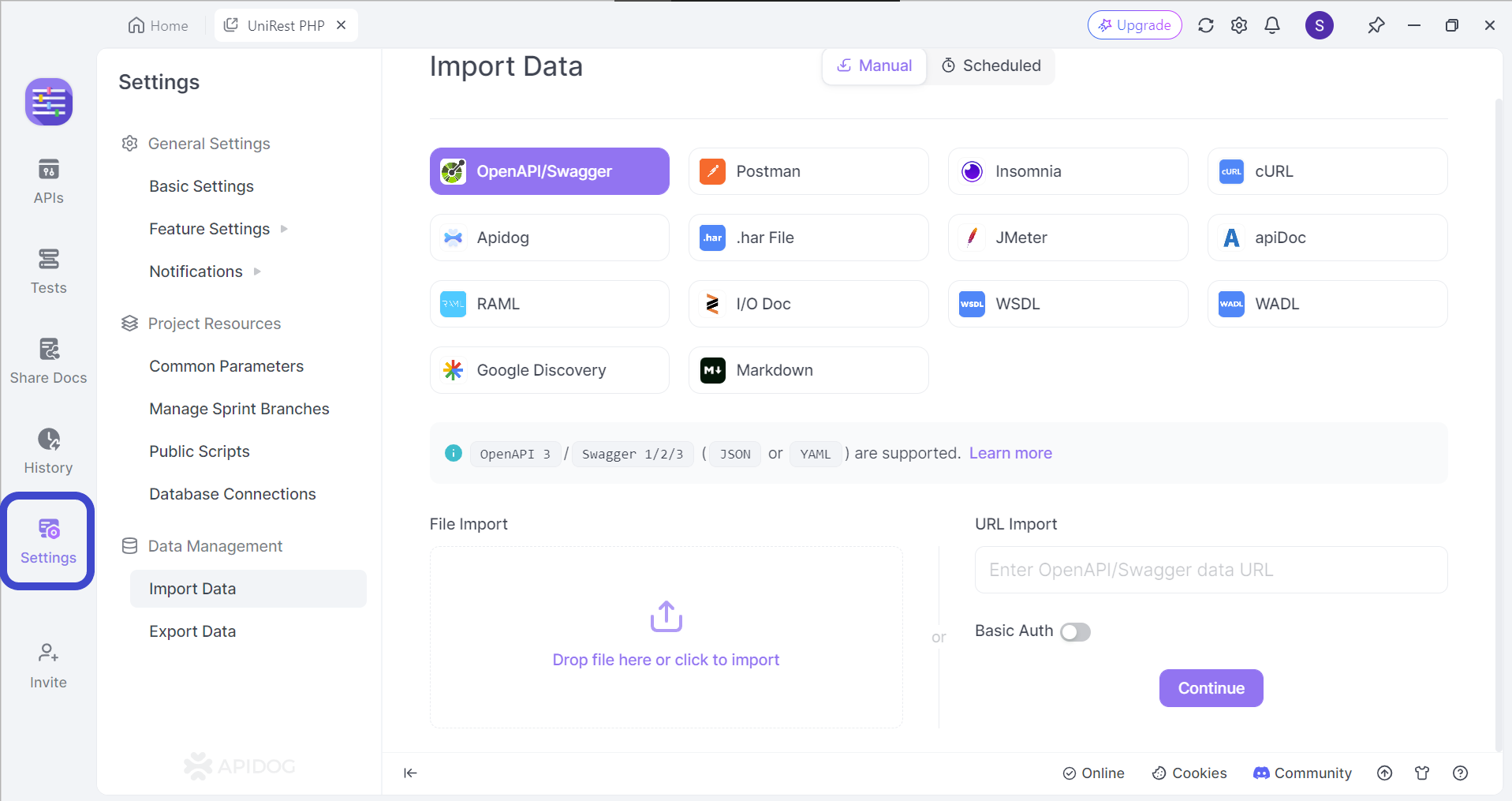
Generate API Documentation For Your Project with Apidog
To generate API documentation, click the Share button on the left side of the Apidog window. On the "Shared Docs" page, press the + New button to create your first documentation.
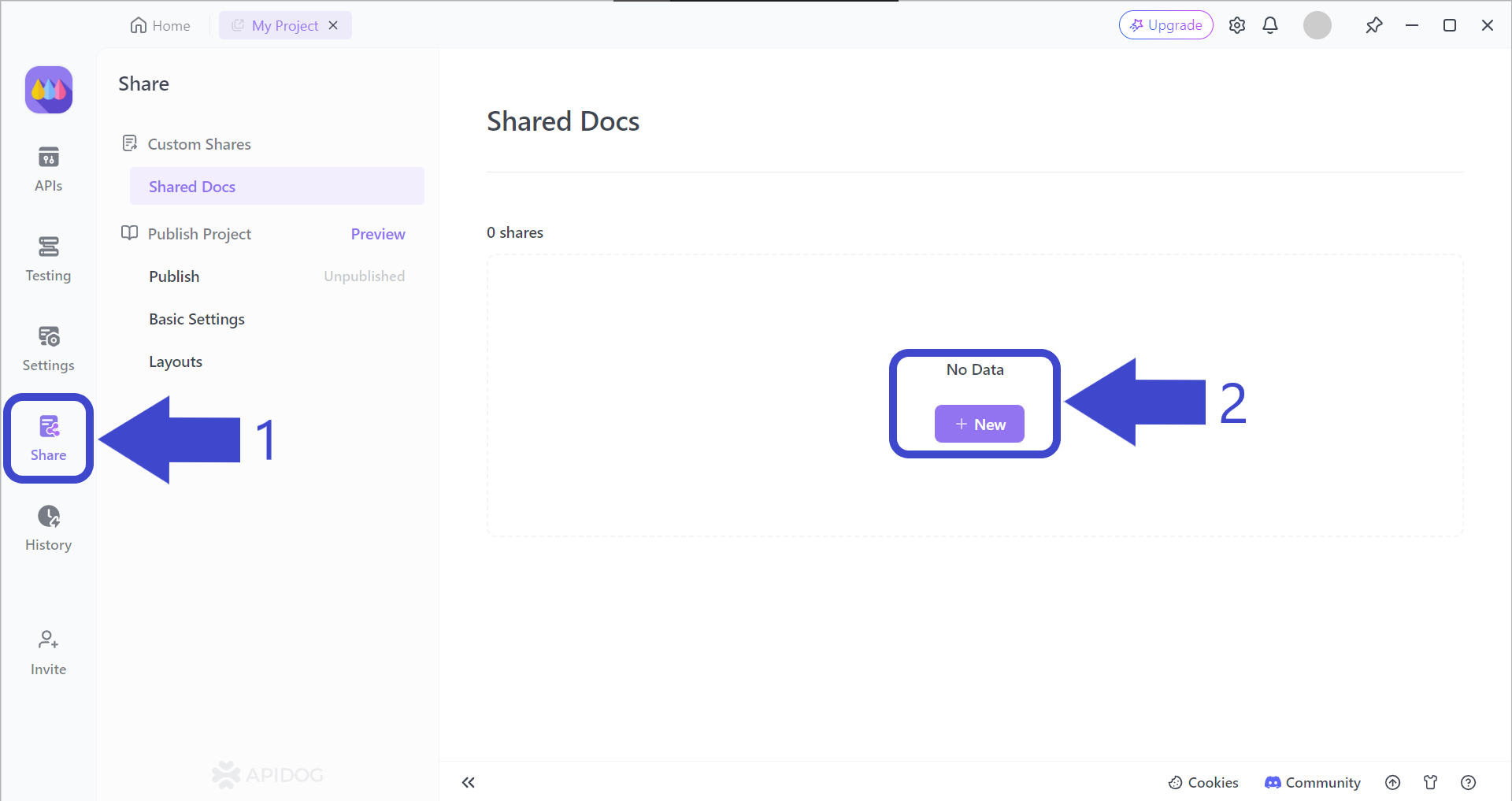
Arrow 1 - First, press the Share button on the left side of the Apidog app window. You should then be able to see the "Shared Docs" page, which should be empty.
Arrow 2 - Press the + New button under No Data to begin creating your very first Apidog API documentation.
Select and Include Important API Documentation Properties
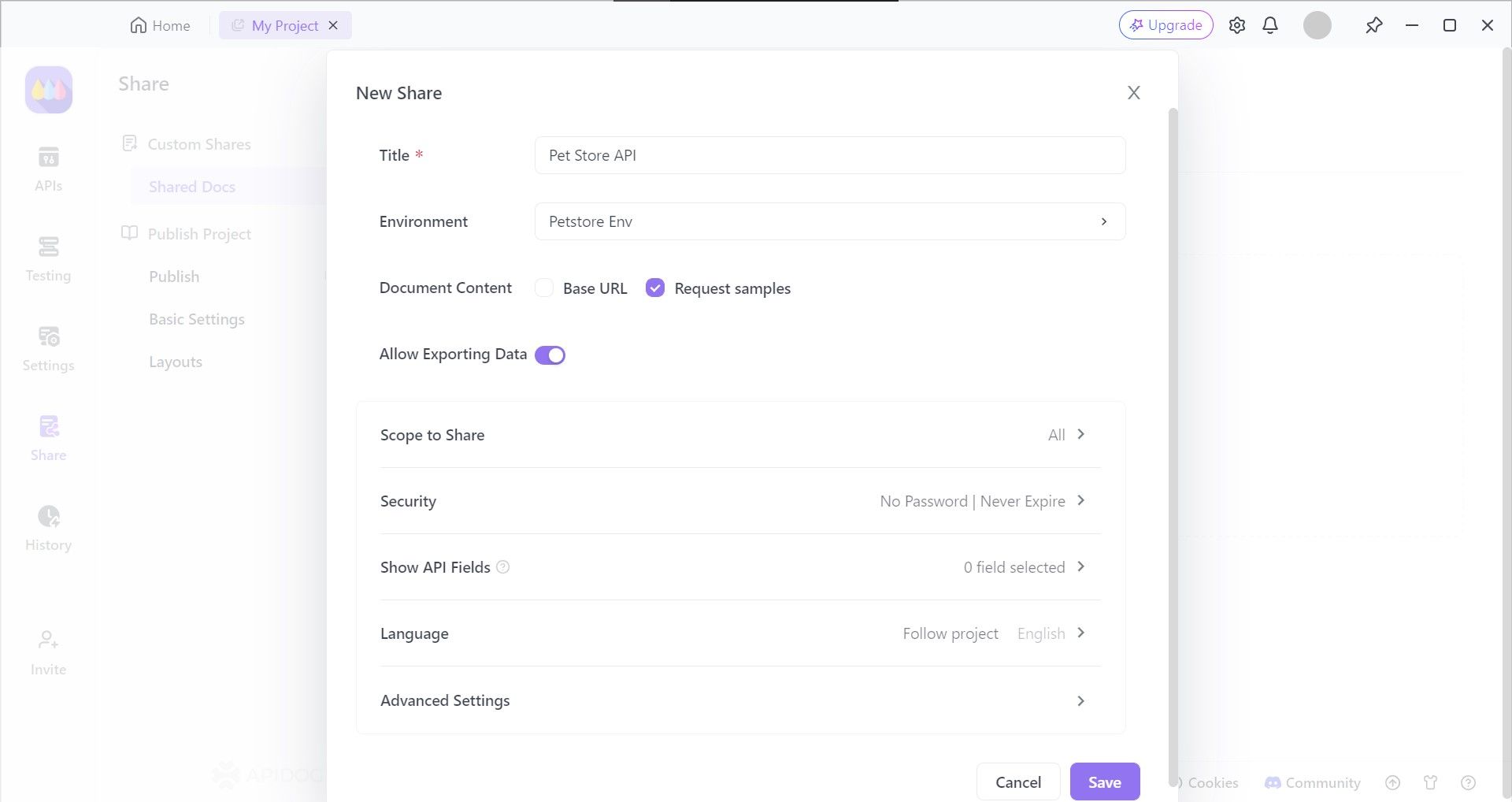
Apidog allows you to customize documentation properties, such as visibility settings and password protection. Once your documentation is public, you can share, edit, or delete it as needed.
View or Share Your API Documentation
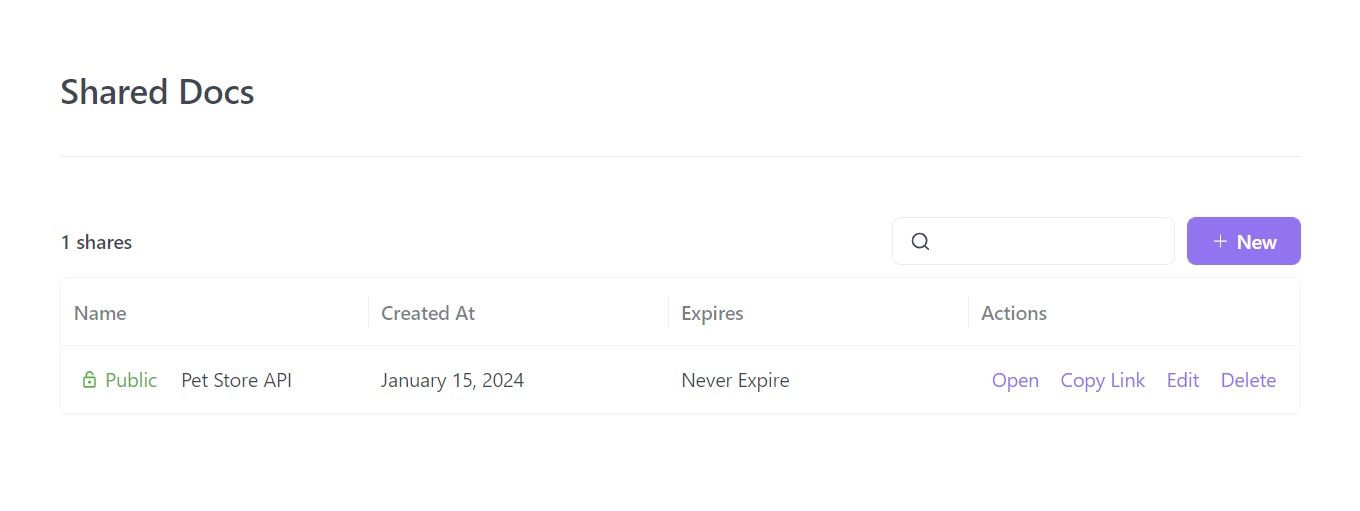
Once the API documentation is seen as Public, you have the option of sharing, editing, or deleting it, depending on what you wish to proceed with.
For more detailed instructions on generating API documentation with Apidog, read this article:
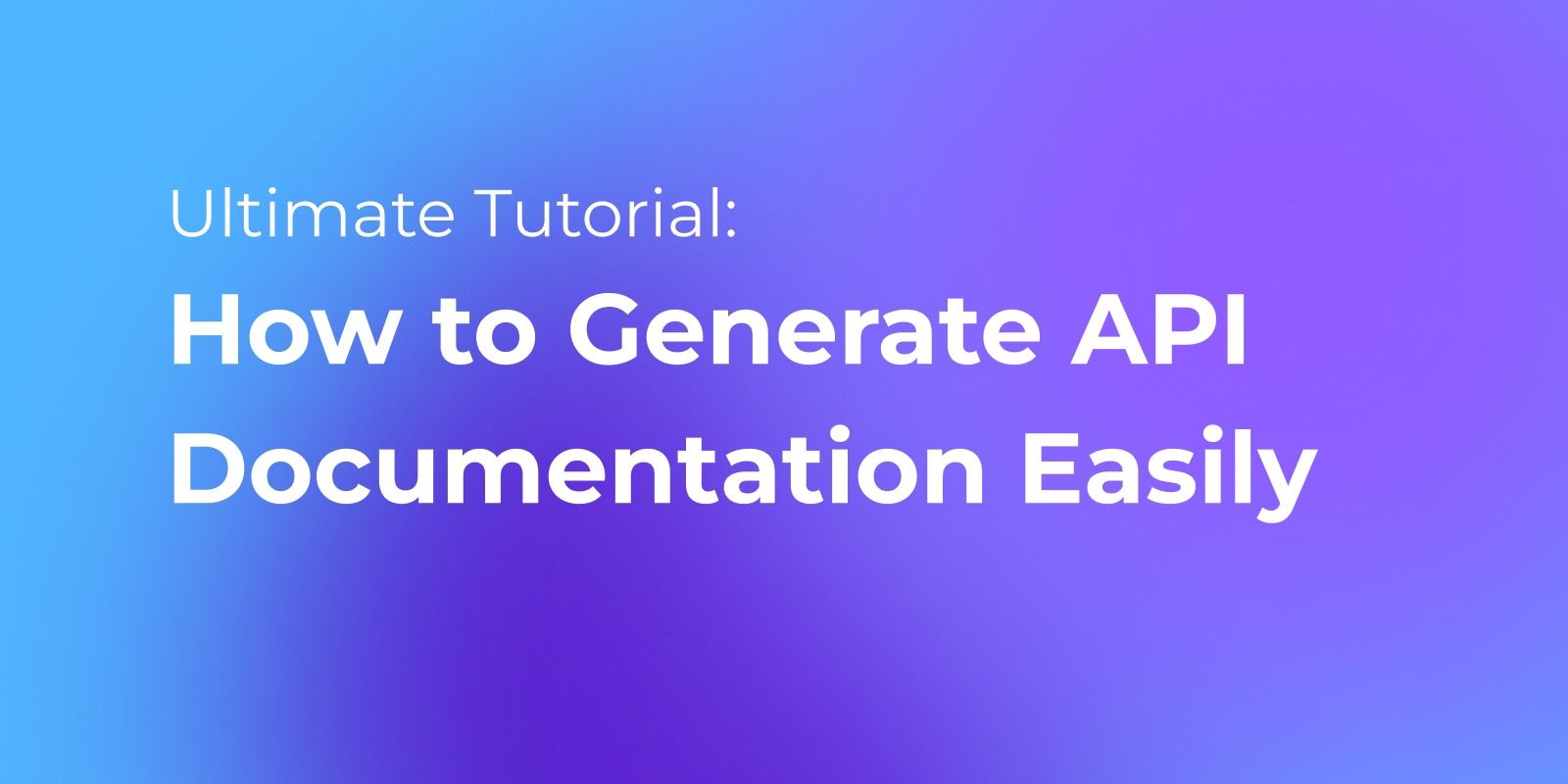
Conclusion
Postman's Export Workspace feature is a powerful tool that significantly enhances API development workflows. By allowing teams to create portable snapshots of their API projects, it facilitates better collaboration, ensures data integrity, and streamlines knowledge transfer. As organizations increasingly adopt API-first strategies, the ability to efficiently manage and share API development environments becomes crucial. The workspace export functionality addresses this need, making it an indispensable feature for modern API development teams.
Whether you're a solo developer looking to back up your work, a team leader aiming to improve collaboration, or an organization striving for better API governance, Postman's workspace export feature offers the flexibility and functionality to meet your needs. By incorporating regular workspace exports into your API development workflow, you can ensure that your projects are well-documented, easily shareable, and protected against data loss.
As the API landscape continues to evolve, tools like Postman's workspace export will play an increasingly vital role in maintaining efficient, collaborative, and secure API development practices. Embracing this feature and integrating it into your development process can lead to more streamlined workflows, improved team productivity, and ultimately, better API products.




